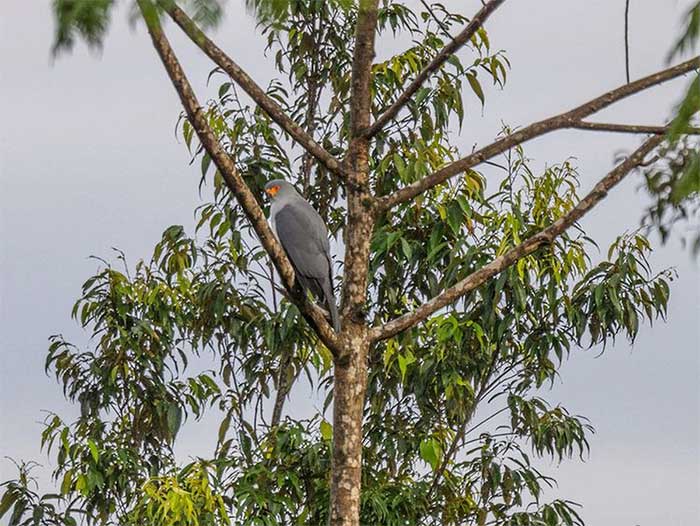Bird of prey 'missing' for half a century discovered
The World Wildlife Fund (WWF) announced on September 13 that it had just discovered a bird of prey that had "disappeared" for the past 50 years .
A photographer has stunned scientists by capturing a New Britain hawk , an endangered bird of prey, in Papua New Guinea. It is the first time in more than 50 years that the bird has been recorded.

A New Britain hawk in Pomio, East New Britain province (Papua New Guinea) - (Photo: Tom Vierus/WWF-PACIFIC/AFP).
The New Britain hawk is found only on the island of New Britain in Papua New Guinea and is considered a threatened species , although little is currently known about the bird's status.
The International Union for Conservation of Nature (IUCN) estimates there are between 2,500 and 10,000 adults in the wild, but the bird's elusive nature makes it difficult for scientists to confirm specific information.
In fact, the New Britain hawk is so unusual that Fiji-based photographer Tom Vierus didn't even realize he had photographed it at first. In a WWF statement, he said he was surprised to learn that this was apparently the first photo of the ' long- lost species.'
According to John Mittermeier, director of the Lost Birds Service at the Bird Conservancy (USA), the most recent scientific documentation of this species appears to be a specimen collected in 1969, currently kept in a US museum. Although there are occasional reports that this bird exists, the New Britain hawk has not appeared in photographic, audio and specimen documents for the past 55 years.
WWF stressed that the discovery of the New Britain hawk shows the importance of protecting the area from threats such as logging and mining.
Companies are now mining vast reserves of gold, copper, nickel, natural gas and timber in the Oceania nation, which is also home to the world's third-largest untouched rainforest, according to the WWF, while environmentalists warn that little research has been done on the rich and diverse ecosystem now at risk.
- Birds and birds are hunting: They scare their prey so much that they don't dare to move
- Discovered two missing ships from the 19th century when searching for MH370
- 10 spectacular action phases of birds
- The mysterious disappearance of rare birds
- Spiders use 'bird prey'
- Big bird - High-speed bird of prey
- Discovered animals appear before dinosaurs
- Angkor, the home of gods
- Video: The mother bird is searching for prey, the snake is 'big' swallowing all the eggs
- 5 mysterious missing children in Christmas night, secret for more than half a century
- Cute birds have extremely horror hobbies: Pinch the prey on a thorn
- The half-toned bird suspected of being massacred to extinction
 Animal 'suffering' after hibernation
Animal 'suffering' after hibernation Why do goats climb well?
Why do goats climb well? Scientists were surprised to see chimpanzees eating turtles
Scientists were surprised to see chimpanzees eating turtles Giant catfish died deadly due to drought in Thailand
Giant catfish died deadly due to drought in Thailand